
Top choices to instantly enhance your productivity.
Find the Best AI Tools to Optimize Your Work and Personal Tasks
Best Knowledge Management AI Tools in 2024
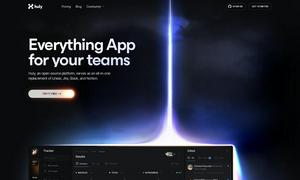
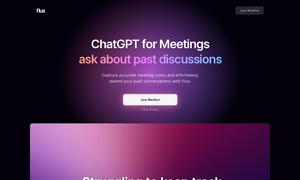
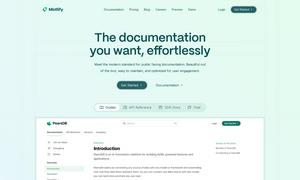

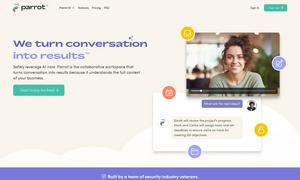

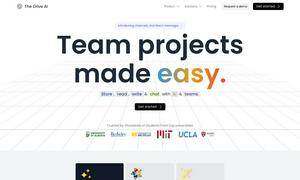
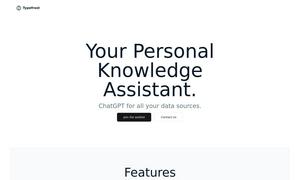
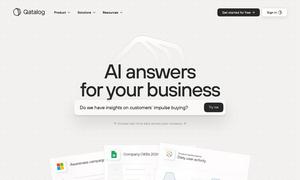
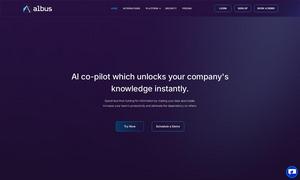
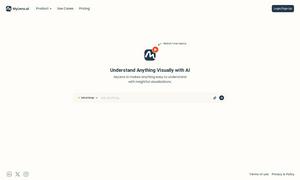
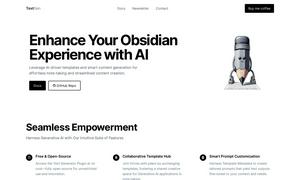
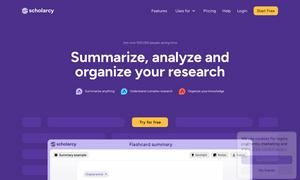
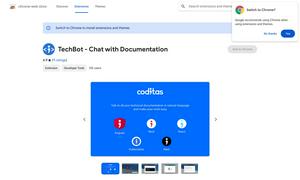
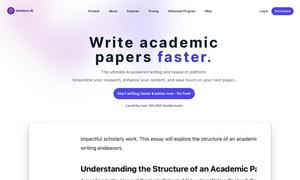
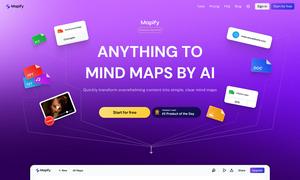
What is Knowledge Management
Knowledge Management Category focuses on efficiently organizing, sharing, and analyzing information within organizations. Its main purpose is to enhance collaboration and streamline workflows, ensuring employees access the right knowledge when needed. A standout feature is its ability to integrate diverse data sources, improving decision-making quality.
How Knowledge Management works
The Knowledge Management Category operates through a structured approach that includes the identification, collection, organization, and dissemination of knowledge within an organization. Users typically begin by gathering relevant information from various sources, including documents, databases, and expert insights. This information is then categorized and stored in a centralized platform that makes it easily accessible. Collaboration tools such as discussion forums and wikis enhance interaction among team members, enabling real-time knowledge sharing. Regular updates and management of the information ensure its relevance, ultimately leading to improved efficiency and innovation through informed decision-making.
What are the advantages of Knowledge Management?
The advantages of the Knowledge Management Category are numerous, including increased efficiency, enhanced collaboration, and better decision-making capabilities. It enables organizations to leverage collective knowledge, reducing the time spent searching for information. By providing a structured framework for knowledge sharing, it fosters innovation and continuous learning among teams. Unique features like integrated data sources enhance the accuracy and reliability of the stored information, ensuring users have access to the best insights possible for strategic planning.
Key Features for Knowledge Management
Centralized Knowledge Repository
The centralized knowledge repository in the Knowledge Management Category enables organizations to store and access vast amounts of information seamlessly. This unique feature promotes efficiency by ensuring all employees can find the necessary resources in one place, enhancing collaboration and decision-making through easy access to vital knowledge.
Collaborative Tools Integration
Collaborative tools integration is a key feature of the Knowledge Management Category that enhances teamwork and knowledge sharing. By allowing real-time collaboration through platforms like wikis and shared documents, this feature empowers teams to work more effectively, fostering innovation and engagement through collective insights.
Robust Analytics Capabilities
Robust analytics capabilities stand out within the Knowledge Management Category, providing organizations with insights into knowledge usage and effectiveness. This distinct feature allows users to track how information is accessed and shared, delivering valuable metrics that inform strategic improvements and optimize knowledge workflows.
Use Cases for Knowledge Management?
The Knowledge Management Category showcases its value in various scenarios, such as onboarding new employees, streamlining project collaborations, and optimizing customer service responses. In onboarding, it allows new hires to access vital resources quickly, helping them acclimate faster. For project teams, it enables real-time collaboration, ensuring all members are on the same page and can contribute effectively. In customer service, it aids representatives in quickly finding knowledge bases to address client inquiries, ultimately leading to improved customer satisfaction and loyalty.
FAQs for Knowledge Management
How does the Knowledge Management Category enhance collaboration within teams?
The Knowledge Management Category enhances collaboration within teams by providing centralized resources and collaborative tools that promote shared knowledge. These features enable team members to access and contribute information in real-time, ensuring everyone is aligned and fostering a culture of innovation through continuous communication.
What role does integration play in the Knowledge Management Category?
Integration plays a crucial role in the Knowledge Management Category by allowing organizations to connect various data sources and tools into a cohesive system. This interconnectedness ensures that information is easily accessible from one platform, enhancing the efficiency of knowledge sharing and streamlining workflows across teams.
How can the Knowledge Management Category improve decision-making processes?
The Knowledge Management Category improves decision-making processes by ensuring that relevant information is readily available and organized. With easy access to insights and historical data, decision-makers can make informed choices, reducing uncertainty and enhancing strategic planning through better underpinnings of knowledge.
What competitive advantage does the Knowledge Management Category offer?
The Knowledge Management Category offers a competitive advantage by streamlining knowledge sharing and enhancing collaboration within organizations. Its unique features, such as a centralized repository and integrated analytics tools, allow businesses to leverage their collective intelligence efficiently, leading to faster innovation and improved service delivery.
What specific benefits do organizations gain from implementing the Knowledge Management Category?
Organizations implementing the Knowledge Management Category gain numerous benefits, including increased efficiency in information access, improved collaboration among team members, and enhanced decision-making capabilities. These advantages translate into higher productivity and a stronger capacity for innovation, allowing businesses to stay competitive in their industries.
How do users typically benefit from the features of the Knowledge Management Category?
Users typically benefit from the features of the Knowledge Management Category through streamlined access to shared knowledge and collaborative tools that enhance their workflows. By utilizing these functionalities, employees can quickly find the information they need, collaborate effectively with peers, and contribute to continuous learning within their teams.




























